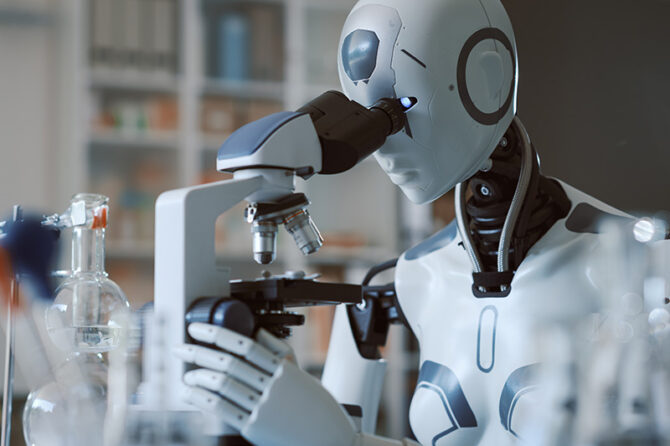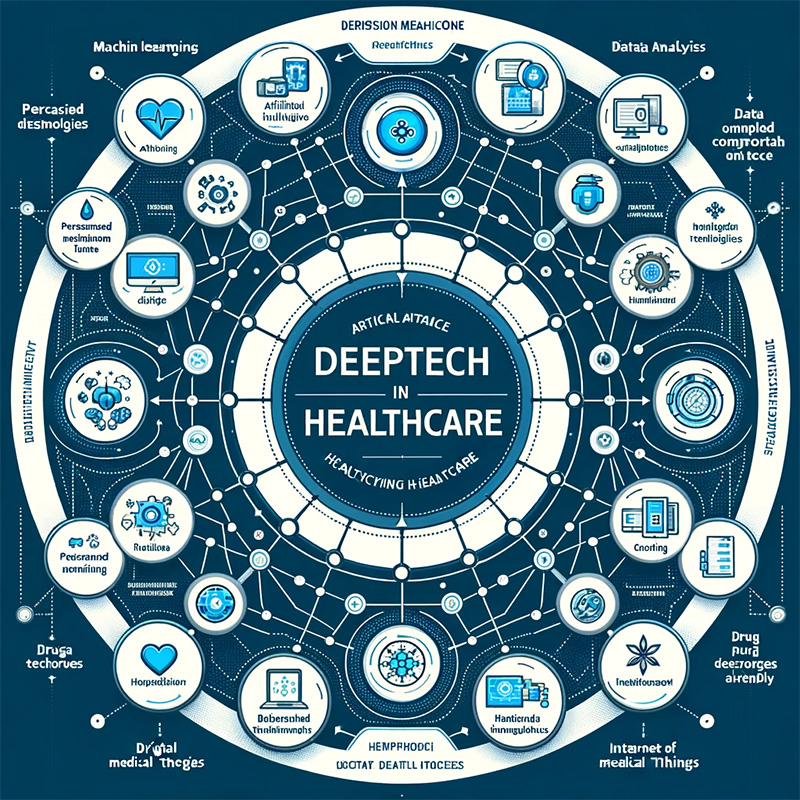
As a healthcare professional, I’ve seen the transformative impact of deeptech, including AI, machine learning, and other advanced technologies, in personalizing patient care. It’s particularly influential in precision medicine, enhancing diagnosis and treatment accuracy. Developing these technologies involves challenges like extensive research and navigating complex intellectual properties, but the results are revolutionary. Deeptech has improved patient outcomes and reshaped healthcare management and policy. My experience confirms that it’s paving the way for a more efficient, effective, and patient-centric future in healthcare, offering a blend of deep medical insights and cutting-edge technological solutions.
Understanding Deeptech and Its Components

At its core, deeptech in healthcare comprises a variety of sophisticated technologies. These include Artificial Intelligence (AI), machine learning, data analytics, digital technologies, blockchain, and the Internet of Medical Things (IoMT). Each of these components plays a unique role:
- Artificial Intelligence and Machine Learning: AI and machine learning algorithms can analyze complex medical data, offering insights that assist in diagnosis, treatment planning, and predicting patient outcomes. For example, AI algorithms are now able to read and interpret medical imaging, such as MRI scans, with high accuracy, often surpassing human performance.
- Data Analytics: The healthcare sector generates enormous amounts of data. Data analytics tools help in making sense of this data, enabling healthcare providers to make informed decisions based on patient history, current health trends, and predictive modeling.
- Digital Technologies: These include telemedicine, electronic health records (EHRs), and mobile health apps that have revolutionized patient engagement and healthcare accessibility. Telemedicine, for instance, has become particularly vital in ensuring continuous patient care, especially during the COVID-19 pandemic.
- Blockchain: In healthcare, blockchain technology offers secure and immutable record-keeping. This can be pivotal in patient data management, ensuring data integrity and security, and facilitating safe data sharing among different healthcare stakeholders.
- Internet of Medical Things (IoMT): IoMT refers to a connected infrastructure of medical devices and applications that can communicate health data. Wearables that monitor vital signs and smart implants like pacemakers that transmit data to medical teams are prime examples.
The Advent of Precision Medicine
A key area where deeptech is making an indelible impact is in the field of precision medicine. Precision medicine is a tailored approach to patient care that considers individual differences in people’s genes, environments, and lifestyles. By leveraging vast biomedical data, precision medicine can pinpoint the most suitable treatment for a specific patient. For instance, in cancer treatment, genomic sequencing of tumour cells helps in selecting targeted therapies that are likely to be effective for a particular patient, significantly improving treatment outcomes.
Enhancing Diagnosis and Treatment
The incorporation of deeptech in healthcare has led to a notable increase in the accuracy and precision of both diagnosis and treatment. With tools like advanced imaging software and predictive diagnostics, medical professionals can detect diseases earlier and with greater accuracy. For instance, AI-powered tools are being used to detect diabetic retinopathy in its early stages, which can prevent vision loss.
Improving Communication and Patient Engagement
Another crucial aspect of deeptech is its role in enhancing communication between healthcare providers and patients. Technologies like patient portals and telehealth platforms not only facilitate better communication but also empower patients by providing them with easy access to their health information, thereby fostering a more active role in their healthcare journey.
Challenges and Development

Developing deeptech solutions is a complex process that involves extensive research, testing, and overcoming intellectual property challenges. The development of a new drug using AI algorithms, for instance, requires not only technological innovation but also compliance with stringent regulatory standards and clinical trials.
The Impact on Life Sciences and Beyond
The life sciences sector has been particularly influenced by the advent of deeptech. It’s changing the landscape of drug discovery and development, patient care, and even the management of health systems. For example, in drug discovery, AI and machine learning are being used to identify potential drug candidates much faster than traditional methods, significantly shortening the development timelines.
Revolutionizing Health and Medical Innovation
Deeptech is at the forefront of ushering in a new era of health and medical innovation. This includes the development of advanced diagnostic tools, the creation of personalized treatment plans based on a patient’s genetic makeup, and the continuous improvement of patient outcomes. An example of such innovation is the development of AI-based applications that can predict patient deterioration in ICU settings, enabling timely interventions.
Transforming the Healthcare Landscape
The ongoing advancements in deeptech are set to transform the healthcare landscape dramatically. This transformation is not just limited to patient care; it extends to how healthcare systems operate, how data is managed, and how health policies are shaped. The future of healthcare, with the integration of deeptech, promises more efficient, effective, and personalized care.
Summarily, deeptech in healthcare is more than just a technological advancement; it’s a comprehensive movement towards a more efficient, effective, and patient-centric healthcare system. Its integration across various aspects of healthcare holds the promise of tackling some of the most pressing challenges in the sector. From enhancing precision medicine to revolutionizing health and medical innovation, deeptech stands poised to redefine the future of healthcare.
Prahlada N. B
23 November 2023
Chitradurga.

















Deep tech, ai and ml are being pushed too much and too soon. What we need first is digitisation of health records at the grass root level. Poor quality of data will make AI useless and dangerous. Its like promoting a low slung Ferrari to tier 2 and 3 cities in India.
ReplyWe need innovation and tech to enable preventive science in semi urban India. The high tech approach to health in tertiary care will help only a very few patients but will make healthcare inaccessible to many due to the generalised increased cost it results in.
Prahlada Sir 💐
Deeptech is transforming scientific breakthroughs into tangible results, within a reasonable timeframe.
This minimum viable threshold is referred to as
‘ Deeptech Valley of Death ‘ ,
referring to amount of ‘seed capital’ & ‘time’ required there in, to bring proof-of-concept prototypes to level of practical application. This becomes important to justify further rounds of funding, for continuing research.
As is known, ‘Aging’ is the biggest risk factor to develop diseases like Alzheimer’s, Parkinson’s, Cancer etc. It is these research companies, working on ‘longevity’…which are in the forefront in utilising Deeptech.They are going to become ‘next Googles’ & those making smart bets on such companies are said to become ‘soft banks of tomorrow’ !
Now , Corporate hospitals in India are adapting this Deeptech, to get improved overall health care outcomes.
ReplyFor it to penetrate & stabilise Indian Govt Health Care network , it definitely takes time.